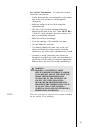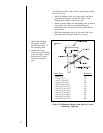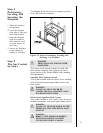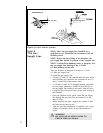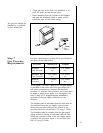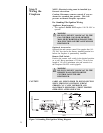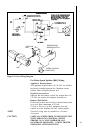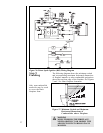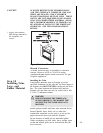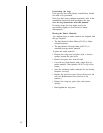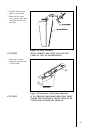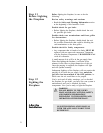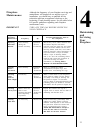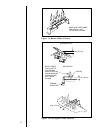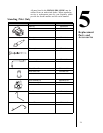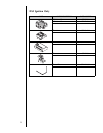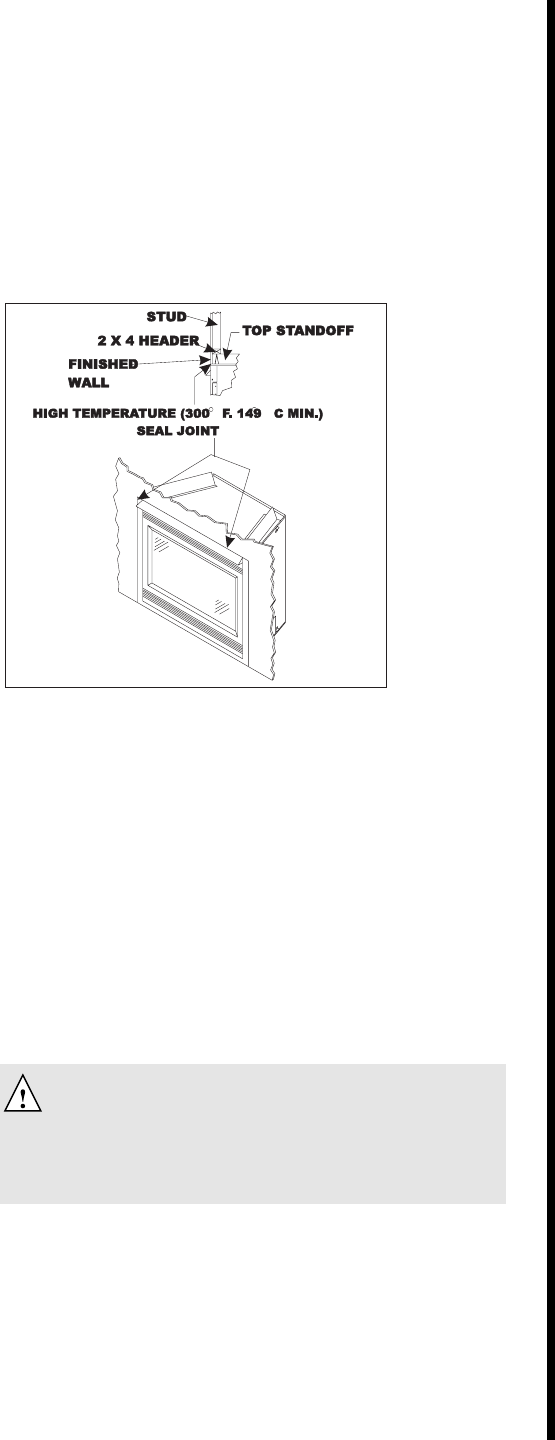
28
Installing the Trim
Combustible materials may be brought up to the
specified clearances on the side and top front edges of
the fireplace, but MUST NEVER overlap onto the front
face. The joints between the finished wall and the
fireplace top and sides can only be sealed with a 300
°
F. (149
°
C) minimum sealant.
WARNING
WHEN FINISHING THE FIREPLACE,
NEVER OBSTRUCT OR MODIFY THE
AIR INLET/OUTLET GRILLES IN ANY
MANNER.
Install optional marble and brass trim surround kits as
desired. Marble, brass, brick, tile, or other non-
combustible materials can be used to cover up the
gap between the sheet rock and the fireplace.
Do not obstruct or modify the air inlet/outlet grilles.
When overlapping on both sides, leave enough space
so that the bottom grille can be lowered and the trim
door removed.
CAUTION
IF JOINTS BETWEEN THE FINISHED WALLS
AND THE FIREPLACE SURROUND (TOP AND
SIDES) ARE SEALED, A 300°
F. MINIMUM
SEALANT MATERIAL MUST BE USED. THESE
JOINTS ARE NOT REQUIRED TO BE SEALED.
ONLY NON-COMBUSTIBLE MATERIAL (USING
300° F. MINIMUM ADHESIVE, IF NEEDED) CAN
BE APPLIED AS FACING TO THE FIREPLACE
SURROUND. SEE THE DIAGRAM SHOWN
BELOW.
1. Apply non-combus-
tible facing material to
the fireplace sur-
round.
Figure 28. Sealant Material
Hearth Extensions
A hearth extension may be desirable for aesthetic
reasons. However, ANSI or CAN/CGA testing
standards do not require hearth extensions for gas
fireplace appliances.
Step 10
Installing Trim,
Logs, and
Ember Material



